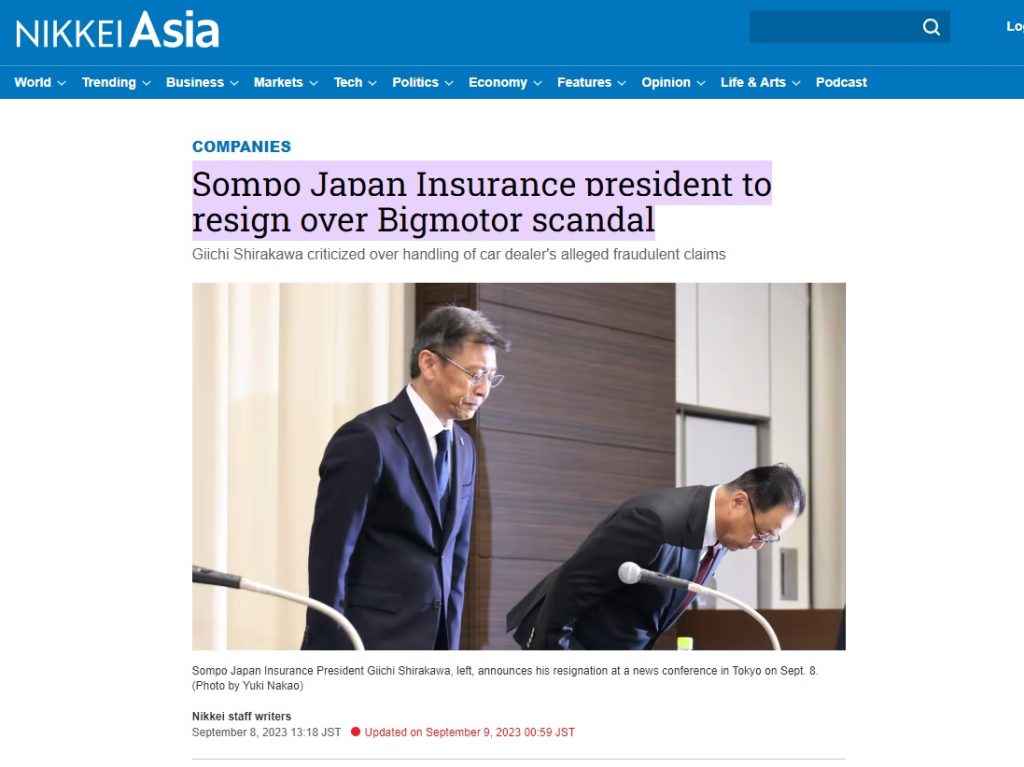
The resignation of Sompo Japan CEO was not surprising in light of the insurer’s dubious relationship with Big Motor, the largest, and notorious, auto repair shop. But the investigation by the Financial Affairs Agency into the matter may not be far reaching enough to address the isssues raised by us.
As we argued, the insurers’ collusive behavior, at the consumers’ expense, is enabled by the ambiguous liability rules of Japanese courts, as ambiguity works to create an economic incentive for the insurers to settle, regardless of the merit of the case.
Needless to say, the incentive leads to moral hazard to the extent liable parties will face a smaller incentive to avoid accidents. Moreover, the larger the party’s fleet is, the greater will be the moral hazard, because these corporate customers can bring the matter to the court when they believe their liability should be lower in order to extract a greater concession from small scale adversaries.
In sum, the Japanese car insurance business has become a tool to share inefficient rents arising from collusive behavior with its larger customers. In order to rectify the current state, it is imperative for the regulator to step in; it should review the entire practice, not only from the customer protection objective, but from the efficiency perspective.